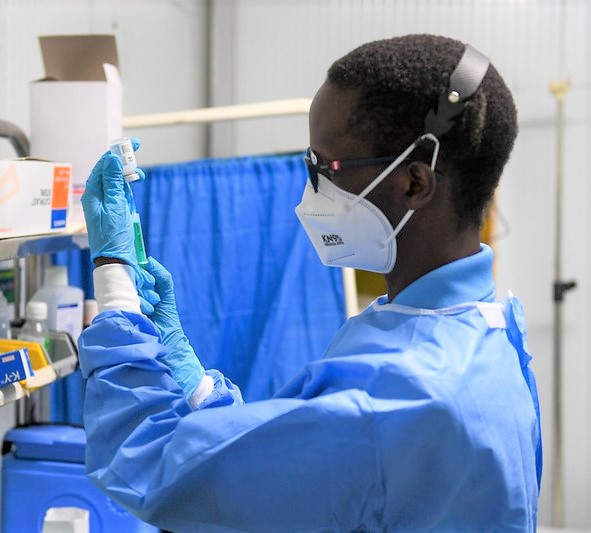 The US Government Accountability Office (GAO) released a report on key COVID-19 findings and recommendations, with the aim of helping federal agencies better prepare for future emergencies, according to a GAO press release.
The US Government Accountability Office (GAO) released a report on key COVID-19 findings and recommendations, with the aim of helping federal agencies better prepare for future emergencies, according to a GAO press release.
The report is a continuation of the GAO's series on the accountability and effectiveness of the federal government's $4.7 trillion pandemic response since 2020.
The current report focuses on lessons learned from April 2022 through April 2023. Experts looked at five key areas, including public health preparedness, fraud, vulnerable populations, distribution of COVID funding, and the pandemic's impact on the US economy.
About 45% of [GAO recommendations] have been fully or partially addressed.
"As of April 2023, we've made 386 recommendations to 26 federal agencies and 19 suggestions to Congress to strengthen response and preparedness. About 45% of those have been fully or partially addressed," the GAO writes.
Heightened risk of fraud
Of note, the GAO said more federal stopgaps and surveillance measures for fraud must be taken into account as the US plans for the next pandemic.
"As federal agencies sought to expedite payments to individuals and businesses affected by the COVID-19 pandemic, agencies used some processes that GAO has previously reported can increase fraud risk,” the authors of the report wrote.
The Department of Labor, in particular, has yet to create an antifraud taskforce to address unemployment insurance, something the GAO recommended in December 2022.
The GAO also said the Department of Health and Human Services failed to update its procedures for Strategic National Stockpile inventory planning reviews and manage risks associated with inventory gaps, something that has also been recommended since 2022.
 Drugmaker Melinta Therapeutics announced yesterday that it will receive funding from the Biomedical Advanced Research and Development Authority (BARDA) to advance two antibiotics targeting multidrug-resistant infections for use in children.
Drugmaker Melinta Therapeutics announced yesterday that it will receive funding from the Biomedical Advanced Research and Development Authority (BARDA) to advance two antibiotics targeting multidrug-resistant infections for use in children.












